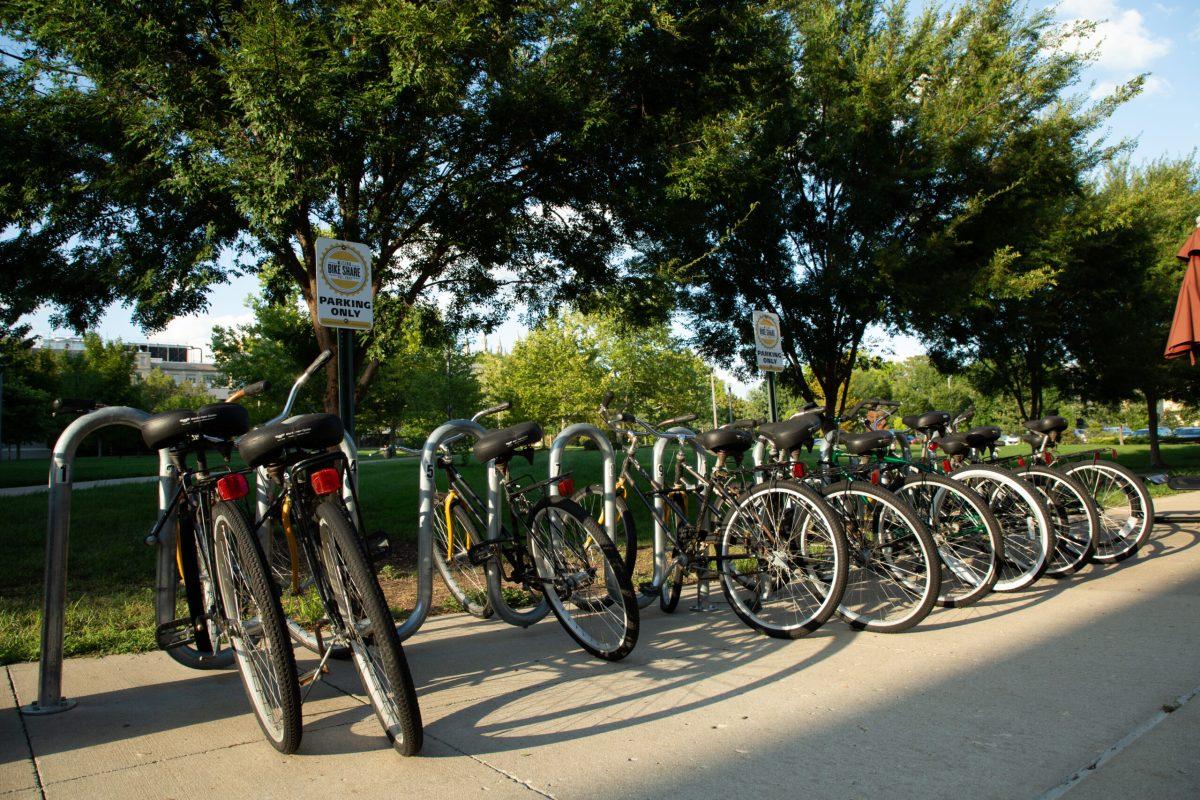Confused about the giant “student activity fees” section of your MU bill? You’re not alone. While looking at your bill, you’ll see charges such as the Jesse Auditorium fee, Student Unions fee and a Sustainability fee. But what does the Sustainability fee go toward?
There is a $1.14 Sustainability fee charge per student per semester, which goes to paying one full-time position at the Sustainability Office as well as providing funding for events and services the office provides. On Nov. 13-15, 2017, the student body voted to approve this fee, which also helped the Sustainability Office merge with the Environmental Leadership Office to maximize environmental education and outreach on campus. This merger aimed to provide MU students with a variety of resources and education to become more sustainable individuals.
####The Sustainability Office is a paramount resource for students. Below are all of the current services that the Sustainability Office provides:####
– The MU Bike Share was established Aug. 27, 2012 to provide free, environmentally friendly transportation to MU students. Since its creation in 2012, students have checked out bikes over 13,100 times. MU Bike Share has check out locations in front of the Student Center as well as Brooks Residence Hall. The bike share is vital for students to get around campus and downtown without a carbon footprint.
– The Bike Resource Center strives to make bikes a safe and affordable option by providing free repairs for students in Speaker’s Circle. The free bike repairs encourage students to continue to travel sustainably, without having to deal with any economic speed bumps.
– It sponsors four farmers’ markets a semester to bring local food and goods directly to students on campus. The farmer’s market is typically held in Lowry Mall. Eating local not only supports local community members but also lowers the carbon footprint from travel. Local produce often tastes better too!
– Seasonal clothing swaps are also a large program of the Sustainability Office to reduce the waste of unwanted clothing from students and faculty on campus.
Not only does the Sustainability Office sponsor these various events and services, but it also hosts movie nights and speakers with an emphasis on sustainability and environmental education. Sustainability education nights are a salient program of the Sustainability Office. Many students don’t have the time to take environmental classes, so providing free environmental education encourages all types of students to become involved in sustainability.
The Sustainability Office at MU currently employs only two full-time workers, while many other large campuses, such as Texas A&M, have at least four full-time workers. If MU were to add extra employees, they could focus on student engagement and outreach, sustainable curriculum and planning more events. There are other offices on MU’s campus that have a multitude of full-time employees to focus on student outreach and program development. Adding more employees to the Sustainability Office would impact a larger pool of students to positively influence both their campus and the larger world around them.
MU Sustainability Manager Raghu Raghavan stresses the importance of having more funding and involvement in the Sustainability Office.
“Of course every office on campus could use more funding,” Raghavan said. “We’re not interested in charging students more money. The student debt crisis is something that is already out of control; we are a public university. I would like to see the state allowing more funding and investing more in education on sustainability.”
The lack of state funding for sustainability and environmental education is unacceptable. Without proper education and involvement, the leaders of tomorrow will not have the adequate tools and experience to change the world. The state of Missouri needs to put a greater focus on encouraging its students to care for the world around them.
There are definitely improvements the Sustainability Office would like to see, such as more educational events, a campus thrift store and more food grown on campus. Without additional funding from the state of Missouri, the Sustainability Office is unable to fully reach all 30,000 plus students that attend MU. Expansion of funding for the Sustainability Office, either from the university or from the state of Missouri, would not only increase the amount and quality of events that could be held at MU, but also increase student interest and support for the environment.
From education to student organizations to volunteering, MU students can make an impact on the world around them. To make our campus a more sustainable and environmentally friendly place to live and learn in, we must allocate more funding toward sustainability. With proper education, students can take their passion for sustainability to address environmental issues beyond campus and truly fulfill the purpose all of us attend college: to change the world.
_Edited by Alexandra Sharp | [email protected]_








